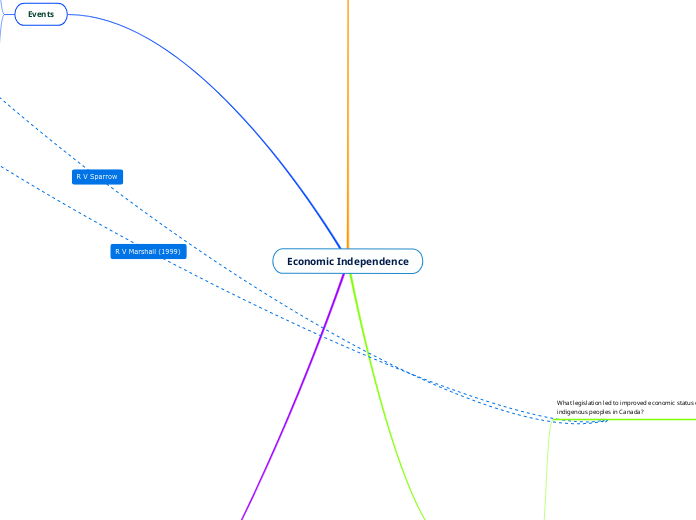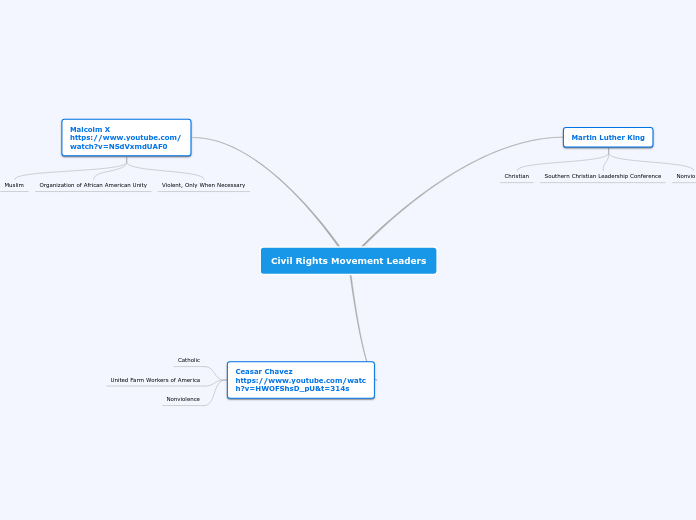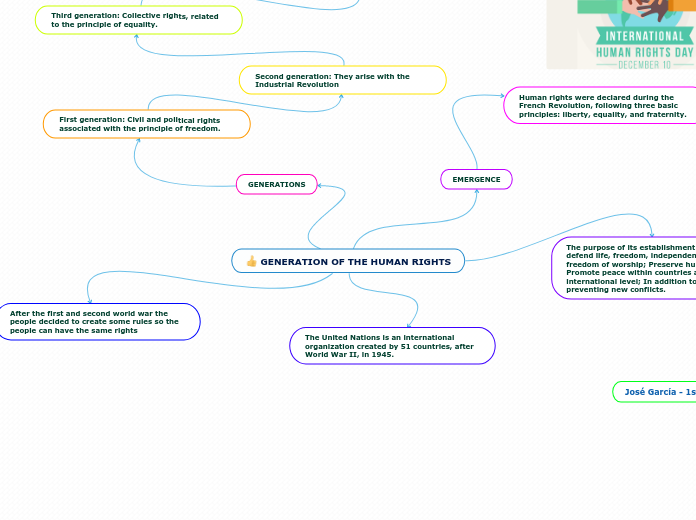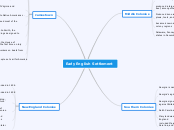Economic Independence
Definition
Economic independence
Traditional rights definition
Indigenous rights refer to the fundamental and inalienable rights of indigenous peoples, who are the land's original inhabitants. This can include:
Cultural preservation
Land and resource rights
Indigenous peoples have the right to their own lands, territories, and resources, and to use, develop, and maintain authority over them.
Self determination
Indigenous peoples have the right to choose their own political position in freedom, maintain and strengthen their unique identities and institutions while also fostering their economic, social, and cultural development.
Land rights
Land rights refer to the legal and customary rights of individuals or communities to own, control, and access land.
Resource rights
Resource rights for indigenous people refer to the legal and customary rights that recognize their ownership, control, and access to the natural resources found within their traditional lands and territories.
Economic Independence definition
How the indigenous people engage in economic activity while preserving their cultural identity and exercising self-determination is referred to as economic independence. This includes:
Resource management
Indigenous groups frequently need ownership and management rights over their lands, territories, and natural resources in order to be economically independent.
Self-sufficiency
Indigenous peoples have the right to preserve, practise, and transmit their linguistic heritages, cultural practises, and traditional knowledge bases.
Events
What land claim agreements impact the economic status of indigenous peoples?
Tsawwassen First Nation(TFN)
The culmination of a long process of negotiations and discussions between the Tsawwassen First Nation (TFN), the federal government of Canada, and the provincial government of British Columbia.
Tsawwassen First Nation Final Agreement (2009)
Through projects including commercial real estate development, tourist endeavours, and collaborations with private sector businesses.
This relates to economic independence because it allowed for the Tsawwassen First Nation's economic self-sufficiency enchance into a better version of itself
A contemporary treaty between the Tsawwassen First Nation, the British Columbia provincial government
The recognition of the Tsawwassen First Nation's rights and title to their traditional territories, as well as the desire of the TFN to regain control over their ancestral lands and resources.
It has enhanced the Tsawwassen First Nation's economic self-sufficiency.
The deal gives the Tsawwassen First Nation options for economic development, land ownership, and self-government
Tsawwassen First Nation est 1778
What events have led to laws for indigenous people to gain economic wealth?
Donald Marshall Jr. arrest
Donald Marshall Jr when he was arrested in 1971
This relates to economic independence because the court acknowledged that the Mi'kmaq and other Indigenous communities have the right to pursue traditional livelihoods like as fishing, hunting, and gathering. The economic significance of these activities for Indigenous people and their capacity to attain economic independence were recognised in this ruling.
R. v. Marshall (1999):
The Supreme Court of Canada ruled that the 1760-61 Peace and Friendship Treaties protected the Mi'kmaq's right to fish for a moderate livelihood, even outside the designated fishing seasons.
This case involved the Mi'kmaq fisherman Donald Marshall Jr., who was charged with fishing eels out of season.
Ronald Edward Sparrow arrest
This relates to the concept because R. V. Sparrow was a court case that clarified section 34 of the Constitution act, which explained most of the Indigenous peoples rights.
R. v. Sparrow (1990):
Ronald Edward Sparrow now
This Supreme Court of Canada decision established the Sparrow Test, which clarified how Section 35 of the Constitution Act, 1982 should be interpreted and upheld Indigenous peoples' rights to carry out cultural practises like fishing for food, social interaction, and ceremonial purposes.
1984
Ronald Edward Sparrow, a member of the Musqueam First Nation in British Columbia, was arrested and prosecuted for using a net that was longer than what was permitted by federal standards while fishing. This precise incident is what gave rise to R v. Sparrow.
Legislation
What legislation limited the economic status of indigenous peoples in Canada?
James Bay and Northern Quebec Agreement (1975):
The deal offered impacted communities with compensation, land rights, and economic development prospects.
To resolve the indigenous tribes' claims of their right over the land in the region.
signed by the Cree and Inuit of northern Quebec, the Quebec government
Signed in 1975
Indian Act(1878)
This connects to economic independence since the Indian Act shaped laws and rules regarding Indigenous peoples' status, territory, resources, and government, having a significant and long-lasting effect on their lives.
However, the Indian Act was designed in order to restrict the economic independence of the different indigenous communities of Canada
Subtopic
subsequently undergone revisions
initially established in 1876
The Canadian federal statute known as the Indian Act
What legislation led to improved economic status of indigenous peoples in Canada?
Constitution Act of 1867/1982
The constitution act of 1982 relates to economic independence because recognizes the indigenous people's rights to hunt, fish, and collect for cultural reasons have been included by this constitutional article.
Constitution Act of 1982
enshrined in the Constitution Act of 1982
ensures that everyone in Canada has access to fundamental rights and freedoms
The Canadian Charter of Rights and Freedoms
The British North America Act, 1867
created a framework for national governance, established Canada as a federal dominion, and outlined the responsibilities of the federal and provincial governments.
sometimes known as the Constitution Act, 1867
establishes the relationship between the federal and provincial governments in Canada
Peoples/Communities
What community wanted to improve the rights of the indigenous people of their community?
Tsilhqot'in Nation est 1989
Tsilhqot'in Nation v. British Columbia was a landmark case that involved the recognition of Aboriginal title and the rights of Indigenous peoples in Canada. Their claim to Aboriginal title over a specific tract of land.
This connects to "Tsilhqot'in Nation v. British Columbia" (2014)
The case centred around the Tsilhqot'in Nation, a group of Indigenous people in British Columbia,
What are some communities that submitted land claims?
Chippewas of the Thames First Nation est 1760
Still ongoing land claim
Chippewas of the Thames First Nation v. Enbridge Pipelines Inc. (2017) case connects to traditional rights, since it talks about how a Line 9 pipeline was built on Indigenous land by the NEB, National Energy Board. This invalidates the land and indigenous rights that the Chippewas of the Thames First Nation community had.
Chippewas of the Thames First Nation v. Enbridge Pipelines Inc. (2017)
An indigenous tribe in Ontario, the Chippewas of the Thames First Nation.
Haida Nation est 1974
While some agreements and interim measures have been reached between the Haida Nation and the government, the claim as a whole has not yet been fully settled.
This connects through Haida Nation v. British Columbia (2004) The Haida Nation argued that the logging operations on Haida Gwaii violated their rights and their ownership of the land, which was at issue in the case.
Haida Nation v. British Columbia (2004)
Located in British Columbia, Canada, the Haida Nation is an indigenous people with historical lands in Haida Gwaii (formerly known as the Queen Charlotte Islands).









